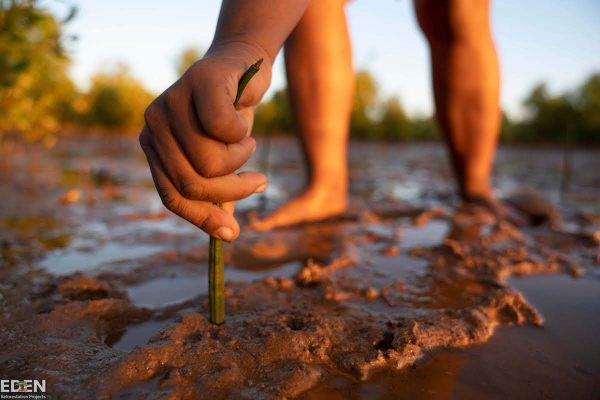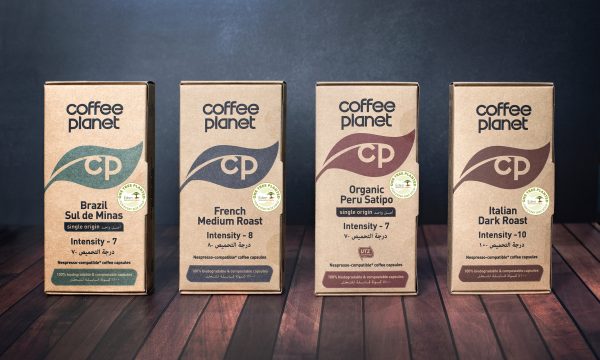By Sofia Serrano

The idea of companies having a social obligation to contribute to society has been around for years, but it was given a formal term in the mid-1950s with the name of corporate social responsibility (CSR). In the 2000s CSR became fundamental instead of a trend. According to the Cicero & Bernay Public MENA CSR Survey Report 2020, a definition of CSR is “a process that seeks to integrate social, environmental, and consumer concerns into business operations, philosophy, and strategy”. Also, the report highlights how, by following global trends, companies in the Middle East have started to implement societal causes and create a responsible business ecosystem that commits to acting ethically in their business relationships. CSR is now growing and has become central for some companies as they search for purpose.
Purpose has been a recurrent topic in the past few years and can be a significant anchor through changing times. as well as a determinant reason for customers to choose a brand. Last year presented novel and peculiar challenges, resulting in some brands responding with empathy, unity and the common motto – “We are in this together” – as well as other common jargon that took the stage in these “unprecedented” times.
Brands like Coca-Cola emphasized this new search for purpose with poetry and charity. Others took a stand for major movements like Black Lives Matter. Brands are embracing the impact they have on people’s lives and are working to meet the expectations of increasingly aware consumers, that would choose a brand over another according to the positive impact they have in society.
In the last decades, the sustainability cause has taken part of companies’ purpose as our generation has witnessed the effects of climate change. Scientists, governments and organizations like the United Nations have called people to take action against the negative effects of climate change.
Brands and private companies have responded to these challenges and implemented different strategies to cope with the challenge of sustainability. In the Middle East, companies like Unilever have advocated for the sustainable cause with actions like raising conversations around the environmental cause with events such as the annual “Building Back Better”.
Sustainability has become a top cause in businesses agendas. Global organisations have called it an “untapped business opportunity of 2021” and a “megatrend”, as responsibility is becoming a cornerstone of corporate reputation today.
Majid Al Futtaim, one of the largest holder companies in the Middle East with shopping malls, communities, retail and leisure outlet,s has also opted for a circular economy strategy, which proves that big corporations have started to make the switch and redirect their purpose towards sustainability.

t Pizza Hut we take pride in being a responsible brand… we ensure our pizza boxes are 100 per cent recyclable and made of recyclable material. We are currently exploring and building know-how on plant-based products in order to ensure our menu evolves to ensure a better footprint on the world.”
continues, “At Pizza Hut our employees come first. We care deeply about their stability. We invest in great health care, have resources available for employees to engage in and we deeply invest in diversity and inclusion. We are investing more in localization of ingredients so our own regions can benefit, building energy-friendly stores, ensuring our packaging is recyclable and exploring how our menu can be more plant-based for the future.”
Sustainability has also been a part of other companies’ strategies with innovative projects like The Plant a Tree Project from Dubai coffee brand Coffee Planet. This project is part of the Eden Reforestation Project, which consists of Coffee Planet planting a tree for every purchase of their new Nespresso-compatible, biodegradable capsules.
This new offer is available online via the Coffee Planet website, Amazon, Noon and supermarkets across the UAE including Carrefour, Spinneys, Waitrose and Choithrams. The capsules come in different blends and origins.

The Eden Reforestation Project is a non-profit organisation with a mission to reduce extreme poverty and restore healthy forests by employing local communities to help plant millions of trees each year. With deforestation at an all-time high, Coffee Planet is dedicated to supporting the rebuilding of forests.
“As one of the region’s first and most experienced specialty coffee roasters, we are acutely aware of the impact we have on our planet. Over the years, we have worked hard on being an ethical and responsible coffee company always ensuring sustainability plays an important part of our business strategy. Here at Coffee Planet, our passion and livelihoods are deeply connected to Mother Earth and her incredible biodiversity. We are always looking for ways to become better at protecting and restoring earth’s biodiversity, ensuring sustainable livelihoods for the entire coffee community and serving the best tasting coffee we can. Coffee Planet will be using this campaign as a tool to educate our customers on how to we take our social responsibility seriously,” said Robert Jones, CEO of Coffee Planet.
Using its power for good, Coffee Planet is proving that larger brands can spearhead sustainability with its vast resourcing to create an impactful difference. This trend keeps growing in the region with more innovative projects coming alone.










